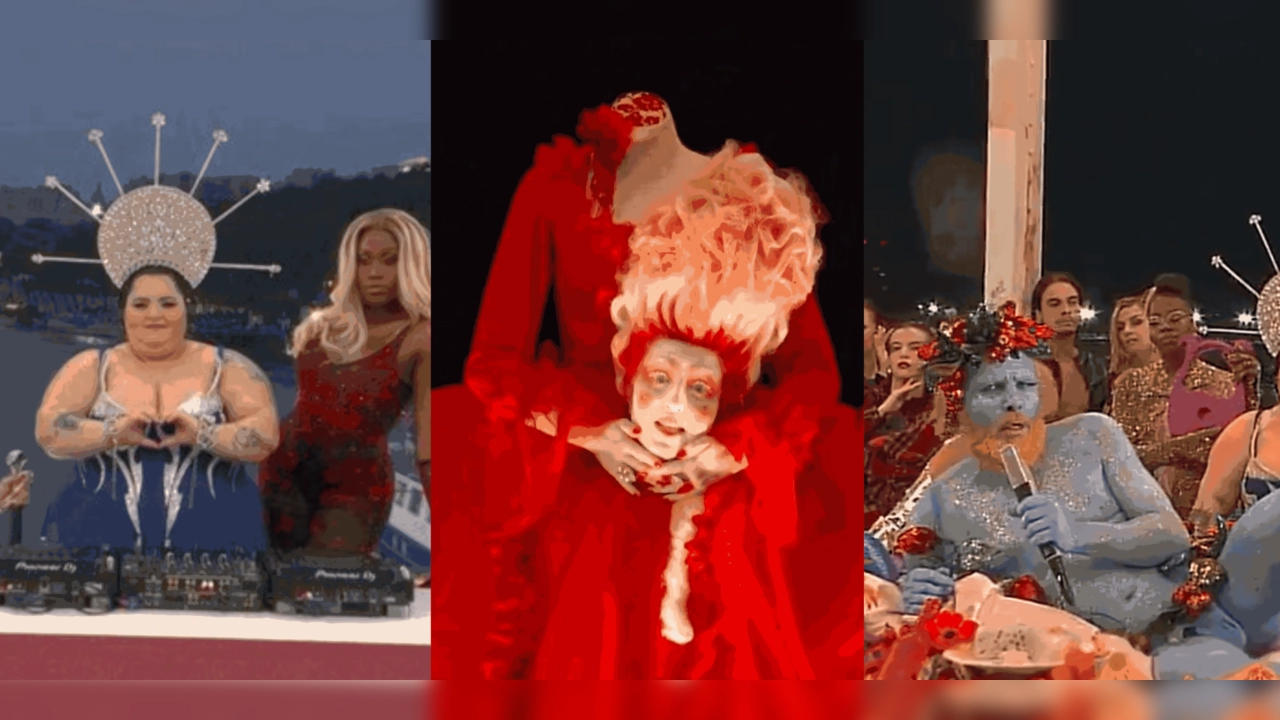In recent years, drag queens have gone from niche performers in nightclubs to mainstream entertainers. Their presence has surged in public spaces, from schools to Olympic ceremonies. But why is society seemingly pushing drag queens down our throats? Is it an attempt to indoctrinate us into accepting what some would argue is “evil” as good and normal? Let’s delve into this topic and see what’s really going on.
Drag Queen Story Hour: What’s the Deal?
One of the most controversial aspects of this phenomenon is the Drag Queen Story Hour, where drag queens read books to children in public libraries and schools. Proponents argue it’s a way to teach children about diversity and acceptance. Critics, however, see it as an inappropriate attempt to expose young minds to adult themes and lifestyles.
The critics have a point. When did we decide that men dressed as exaggerated caricatures of women should be role models for our children? And let’s not even start on the outfits—some of these “queens” are dressed more for a nightclub than a classroom. It’s as if we’ve lost all sense of what’s age-appropriate.
The Olympics: A New Low?
As if Drag Queen Story Hour wasn’t enough, the recent Olympics opening ceremony took it a step further. They replaced the iconic imagery of Jesus and his disciples at The Last Supper with drag queens. Yes, you read that right. This wasn’t just a minor cultural nod; it was a full-blown parody, and for many, it crossed a line.
Imagine the outcry if any other religious figure had been subjected to such mockery. But in today’s society, it seems Christianity is fair game. Isaiah 5:20 in the Bible says, “Woe to those who call evil good, and good evil; who substitute darkness for light and light for darkness; who substitute bitter for sweet and sweet for bitter!” Many believe that what we’re seeing now is precisely what Isaiah warned us about—calling good evil and evil good, a ploy used by Satan himself, according to some interpretations.
The Cultural Agenda
Some argue that this push isn’t just about entertainment but is part of a broader agenda to normalize what many see as morally questionable behavior. By putting drag queens in libraries, schools, and major global events, society is being conditioned to accept these behaviors as normal, even virtuous.
When you think about it, why the sudden rush to mainstream drag culture? It’s not like we have a shortage of role models or entertainers. This isn’t about representation; it’s about reshaping cultural norms and values. And let’s be clear—there’s a difference between teaching children to be accepting and exposing them to adult concepts that they’re not ready to understand.
The Role of Religion
Religion has always played a significant role in defining moral standards and values. For centuries, it has taught the difference between right and wrong, good and evil. Many religious people view the current cultural shift as an assault on these age-old teachings.
Isaiah 5:20 is often cited in these discussions. It’s a stark warning against the inversion of moral values. Some religious leaders argue that what we’re witnessing is a deliberate effort to blur the lines between good and evil, to make what’s traditionally seen as immoral appear moral and vice versa. They believe this is a spiritual battle as much as a cultural one.
Why Should We Care?
Some might argue, “What’s the big deal? It’s just entertainment.” But culture shapes society. What we see, hear, and experience in public spaces influences our beliefs and behaviors. If we normalize drag queens in places where children learn and play, what message are we sending?
We’re essentially telling the next generation that anything goes, that there are no boundaries, and that traditional values are outdated. This isn’t just about drag queens; it’s about the broader implications of accepting everything as morally equivalent.
In conclusion, the sudden and intense focus on drag queens in mainstream culture—from schools to international events—raises important questions. Are we being conditioned to accept behaviors and lifestyles that many find morally questionable? Is this part of a larger agenda to blur the lines between good and evil, as some religious texts suggest?
Isaiah 5:20 warns against such moral inversion, and perhaps it’s time we took that warning seriously. Society needs to have an open and honest conversation about where we’re heading and what values we want to uphold. After all, it’s not just about the present but about the kind of world we want to leave for future generations.

